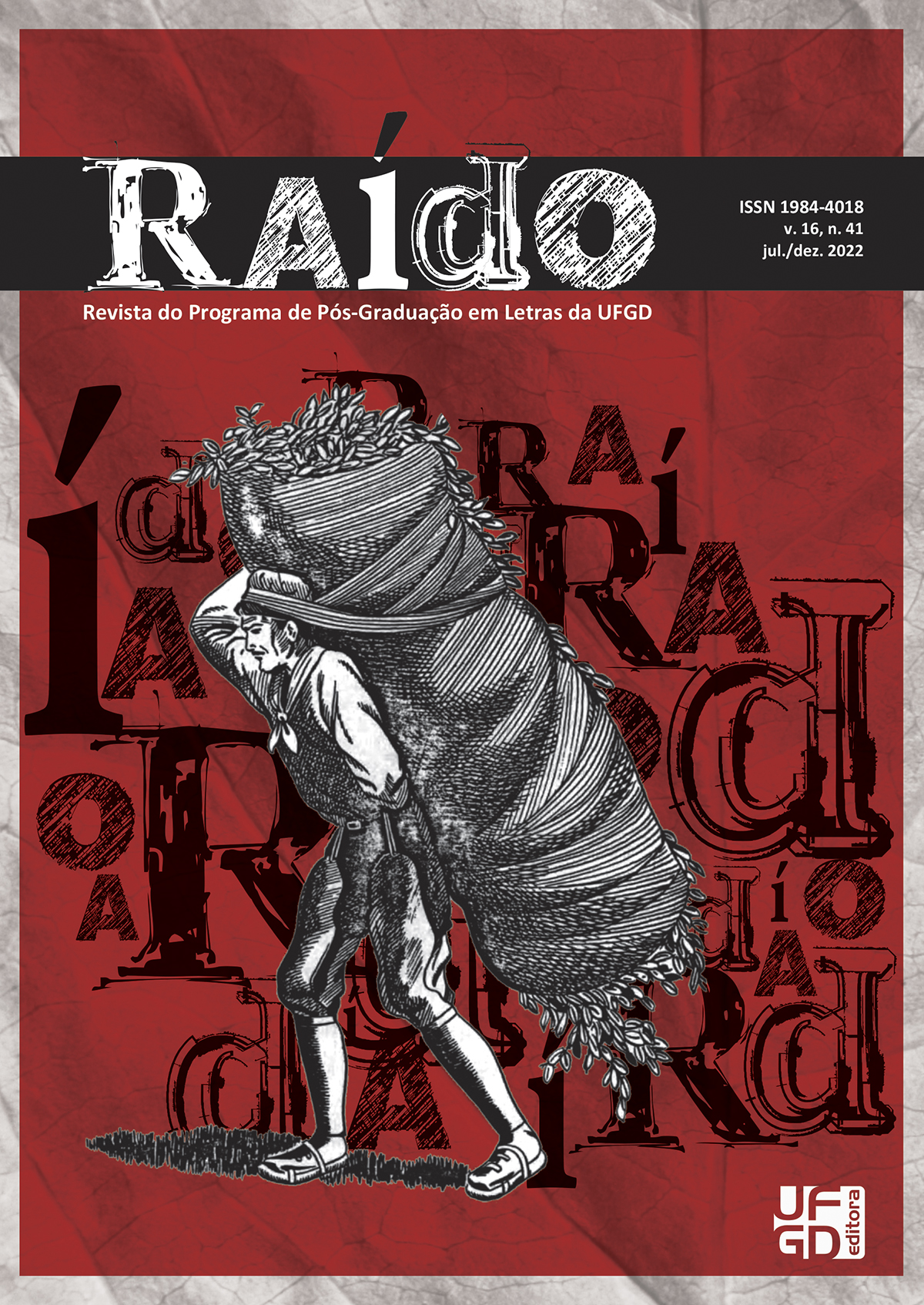THE AMERICAN WOMEN FROM THE SIXTIES: AN ANALYSIS OF TATE TAYLOR’S THE HELP
DOI:
https://doi.org/10.30612/raido.v16i41.15855Palabras clave:
The Help, Women, Race, United StatesResumen
Directed by Tate Taylor in 2011, The Help takes place in the United States in the decade of 1960s and portrays the oppressive condition of black domestic servants. Assuming that the issue of racism in the United States places black women as “less women” than others in society (DAVIS, 1981), this bibliographic research analyzes the social perspective of black and white women in the 1960s, establishes the relationship between domestic workers and their bosses, and how their different position in society influences that relationship. Our analysis also tries to understand the role that racism plays in the narrative of this film.
Descargas
Citas
ADICHIE, C. N. Dear Ijeawele, or a Feminist Manifesto in Fifteen Suggestions. Harper Collins: London, 2017.
ALEXANDER, M. The New Jim Crow: Mass Incarceration in the Age of Colorblindness. New York: The New Press, 2010.
BROWN, A .C. Upon This Rock: The Black Church, Nonviolence, and the Civil Rights Movement. Available at: https://www.jstor.org/stable/420886. Access on Jan 4, 2020. p. 168-174.
DAVIS, A. Women, Race and Class. New York: Random House, 1981.
GRAHAN, A. “We Ain’t Doing Civil Rights”: The Life and Time of a Genre, as Told in The Help. In: Southern Cultures. University of North Carolina Press, 2014, p. 51-64.
HOOKS, B. Ain’t I a woman: Black women and feminism. New York: South End Press, 1981.
JONES, S. W. The Divided Reception of The Help. In: Southern Cultures. University of North Carolina Press, 2014, p. 7-25.
MURPHY, M. K.; HARRIS, T. M. White Innocence and Black Subservience: The Rhetoric of White Heroism in The Help. In: Howard Journal of Communications. Routledge: Georgia, 2017. Vol 29, p. 49 - 62.
RIBEIRO, D. O que é Lugar de Fala? Belo Horizonte: Letramento, 2017.
SPIVAK, G. Pode o subalterno falar? Belo Horizonte: Editora UFMG, 2010.
STEWART, A. J.; SETTLES, I. H.; WINTER, N. J. G. Women and the Social Movements of the 1960s: Activists, Engaged Observers, and Nonparticipants. In: ______. Political psychology. University of Michigan, 1998. p. 63-94.
SANTOS, T. S. “Deus não liga para cor quando resolve mandar um tornado”: raça e gênero em Histórias Cruzadas (2012). 2019. 62 f. Trabalho de Conclusão de Curso (Graduação em História) - Universidade Federal de Uberlândia, Uberlândia, 2019.
XAVIER, I. O discurso cinematográfico: a opacidade e a transparência. Rio de Janeiro: Paz e Terra, 1984.
FILMOGRAFIA DO CORPUS
THE Help. Direction: Tate Taylor, Production: Chris Columbus, Michael Barnathan, Michael Radcliffe. 2011. (146 min).
Descargas
Publicado
Cómo citar
Número
Sección
Licencia
Os autores devem aceitar as normas de publicação ao submeterem a revista, bem como, concordam com os seguintes termos:
(a) O Conselho Editorial se reserva ao direito de efetuar, nos originais, alterações da Língua portuguesa para se manter o padrão culto da língua, respeitando, porém, o estilo dos autores.
(b) Autores mantém os direitos autorais e concedem à revista o direito de primeira publicação, com o trabalho simultaneamente licenciado sob a Atribuição-NãoComercial-CompartilhaIgual 3.0 Brasil (CC BY-NC-SA 3.0 BR) que permite: Compartilhar — copiar e redistribuir o material em qualquer suporte ou formato e Adaptar — remixar, transformar, e criar a partir do material. A CC BY-NC-SA 3.0 BR considera os termos seguintes:
- Atribuição — Você deve dar o crédito apropriado, prover um link para a licença e indicar se mudanças foram feitas. Você deve fazê-lo em qualquer circunstância razoável, mas de nenhuma maneira que sugira que o licenciante apoia você ou o seu uso.
- NãoComercial — Você não pode usar o material para fins comerciais.
- CompartilhaIgual — Se você remixar, transformar, ou criar a partir do material, tem de distribuir as suas contribuições sob a mesma licença que o original.
- Sem restrições adicionais — Você não pode aplicar termos jurídicos ou medidas de caráter tecnológico que restrinjam legalmente outros de fazerem algo que a licença permita.



